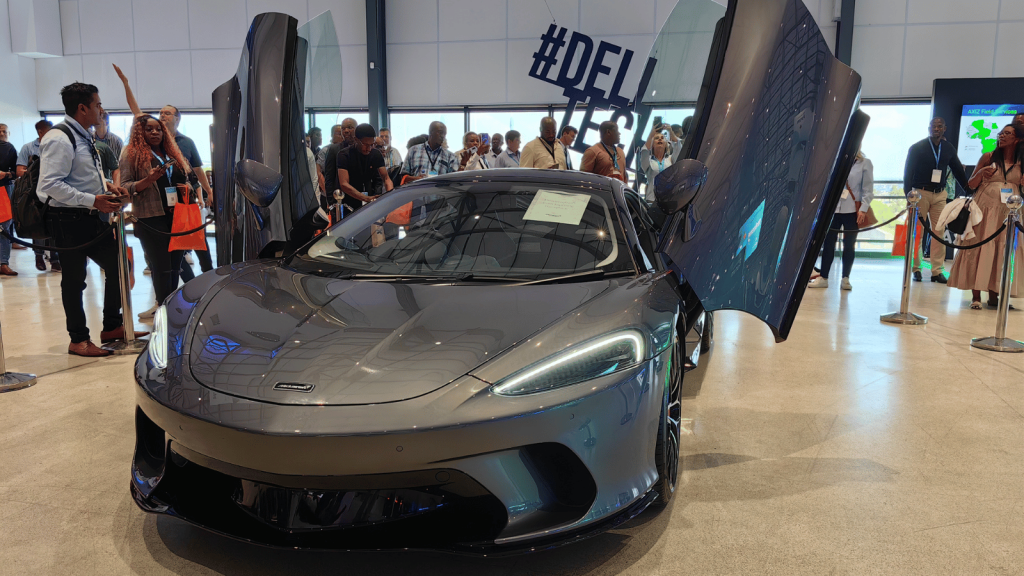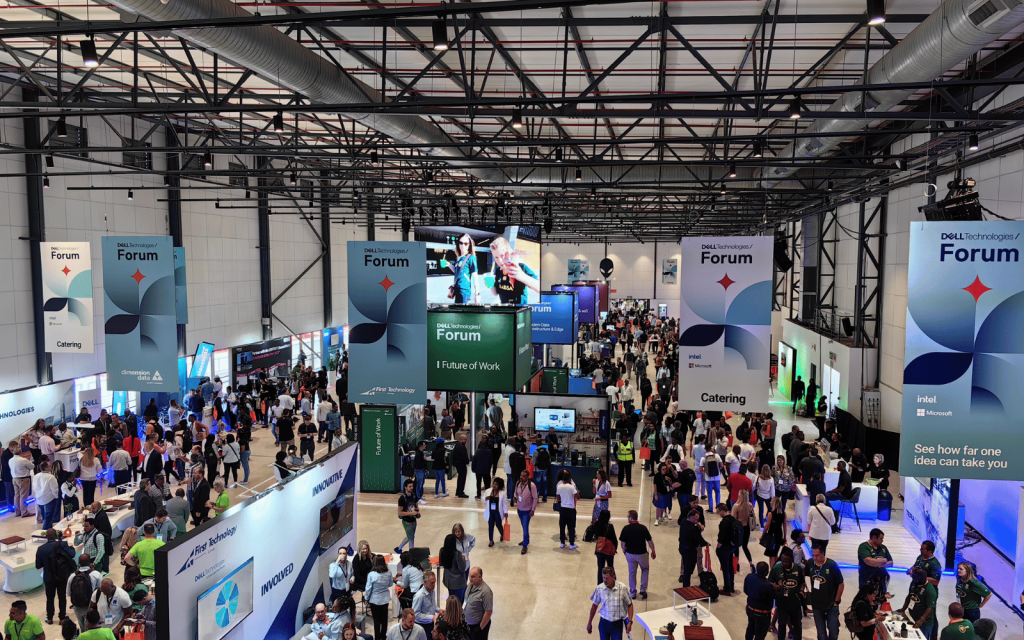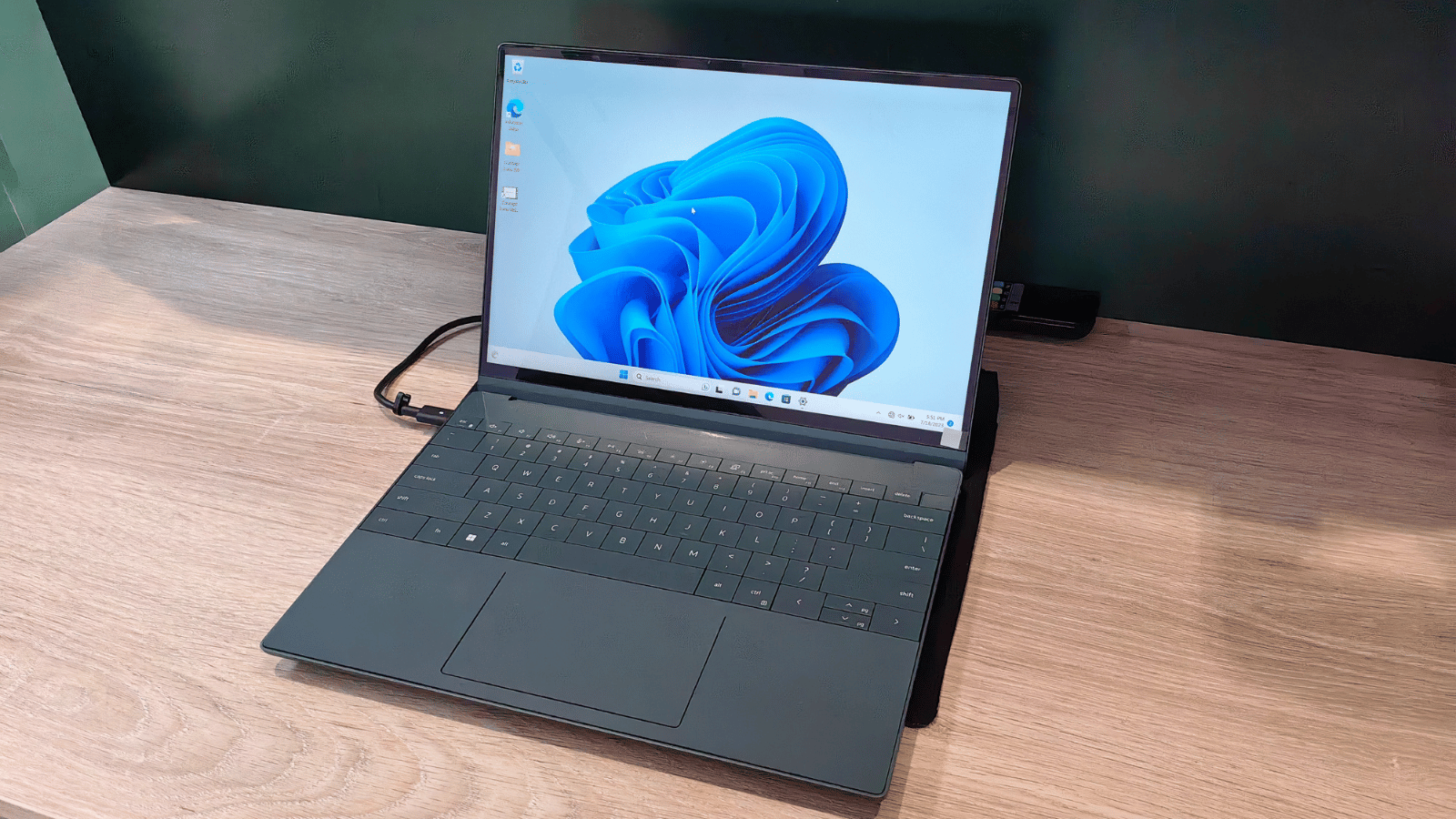Yesterday saw the annual Dell Technologies Forum held at the Kyalami racetrack in Midrand, Johannesburg. You may not know this, but the tech company doesn’t only make and distribute tablets, laptops, and PCs. Some of those were on display, along with stands for its partner companies and a strategically placed McLaren. But the scope of the event was much broader and involved a lot more corporate speak.
Other than an excuse for the company to throw an award party for its partners, the function of this event is to advertise all the wonderful reasons that other companies should turn to Dell for their small, medium, or large-scale ICT needs.
On that list of reasons, alongside other riveting subjects, like ‘multicloud’ and ‘modern data infrastructure and edge’ was ‘the future of work’. That last one piqued our interest. Dell Technologies isn’t a small, cash-strapped company so how it envisions the future of work could be worth some attention.
Dell’s crystal ball says…

According to Dell, the future of work contains, unsurprisingly, artificial intelligence (AI) – ideally on one of its machines using Dell Optimiser. The company made full use of the opportunity to mention it in some form whenever possible and we even heard from Clara, Dell’s own “digital human”. Unfortunately, she had to dash straight after the keynote so we had to settle on hearing more about Dell Optimiser.
To the uninitiated, it’s just bloatware that comes pre-installed on your new Dell laptop that you’re too lazy or afraid to remove lest you break something. But if you don’t mind a little prying, it’s basically your AI butler who doesn’t knock before entering your bedroom. Or, according to Dell, an “AI-based optimisation software that learns and responds to the way you work.”
This includes “detecting your presence” for making sign-ins faster, automatically greying out your screen when it detects another set of eyes peering over your shoulder, and monitoring the programs you use so it knows what to prioritise and optimise. While that might sound appealing, does it have to be so nosy?
Another ingredient in ‘the future of work’, one that Dell’s been going on about for years across most of its business, is sustainability. The reasons should be obvious – the planet’s not doing so great.
Driven by what it calls a ‘circular design’, the company reinforced its commitment to sustainability, promising to use 100% recycled or renewable packaging and more than 50% recycled or renewable materials in its devices by 2030. Further to that, Dell reminded us about its e-waste trade-in program.
Regardless of brand and whether you have a single old laptop or a storeroom full of old workstations, Dell will take it off your hands and it could even sweeten the deal for you. That’s not going to be cold cash in your back pocket, but a little credit toward your new Dell machine is better than a kick in the pants.
Sustainable adult Lego of the future
As grand as that all is, we were more interested to see if Concept Luna had made any progress on becoming a reality. If you haven’t heard of that before, Dell’s modular laptop idea first popped up in 2021.
This year it was presented as a working prototype that allows for toolless disassembly in under a minute. We timed ourselves. A laptop teardown speedrun isn’t the main goal. That would be reducing e-waste and emissions by creating a modular and sustainably-made device. That way, if you need to replace one component or if you want to upgrade, you aren’t forced to buy a whole new machine. The speedrunning potential is just a bonus.
It’ll still be a few years before it’s no longer just a concept and even more before it becomes an industry standard. Fairphone is doing it with smartphones, Dell can do it with laptops. Now, are there any automotive manufacturers within earshot?







